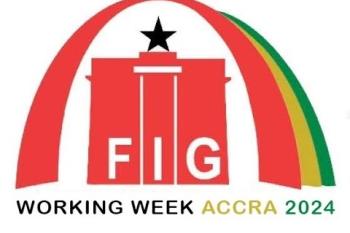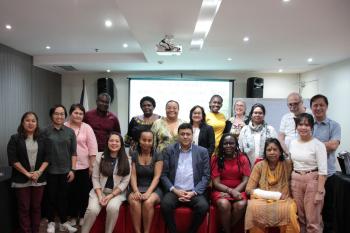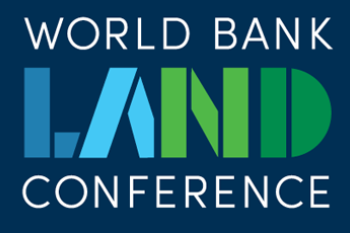
Developing the land policy document and strengthening the capacity of the land administration in the DRC-2019 Highlights
UN-Habitat/GLTN has been implementing the “Land reform support programme: Developing the land policy document and strengthening the capacity of land administration in the DRC since August 2017. This program builds on UN-Habitat/GLTN expertise and its experience in the land sector in the DRC and the initiative of the government to launch together with UN-Habitat/GLTN the land reform process since 2012.
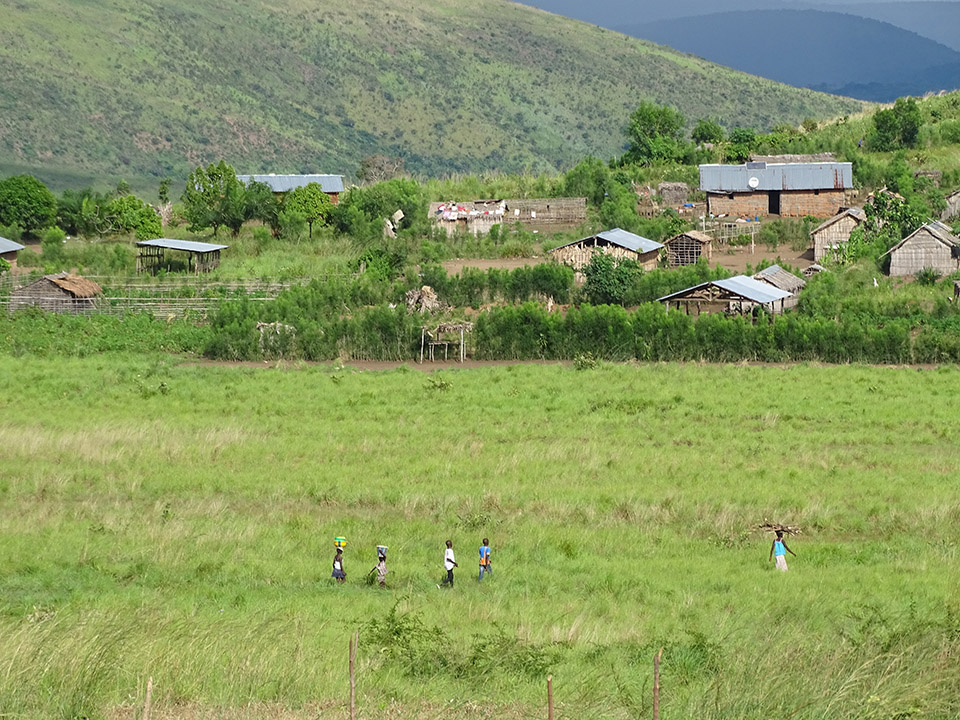 Land reform support programme
Land reform support programme
In 2019, the program registered very important milestones with significant progress made towards a national land policy and land information system:
The National Commission for Land Reform (CONAREF: Commission Nationale de la Réforme Foncière), the mandated land reform statutory body of the Ministry of Land affairs improved it’s functioning by conducting its statutory meetings: Steering, Technical, Program management committees. The commission also organized a press conference to launch sensitization campaign on the land Reform process at the national level. In the same line, capacity building sessions for the CONAREF team has planted its roots this year with the vision to equip this team with skills to fully conduct the land reform process in the country. Finally, the CONAREF manual of administration and finance procedures has been validated by the steering committee and is now operational.
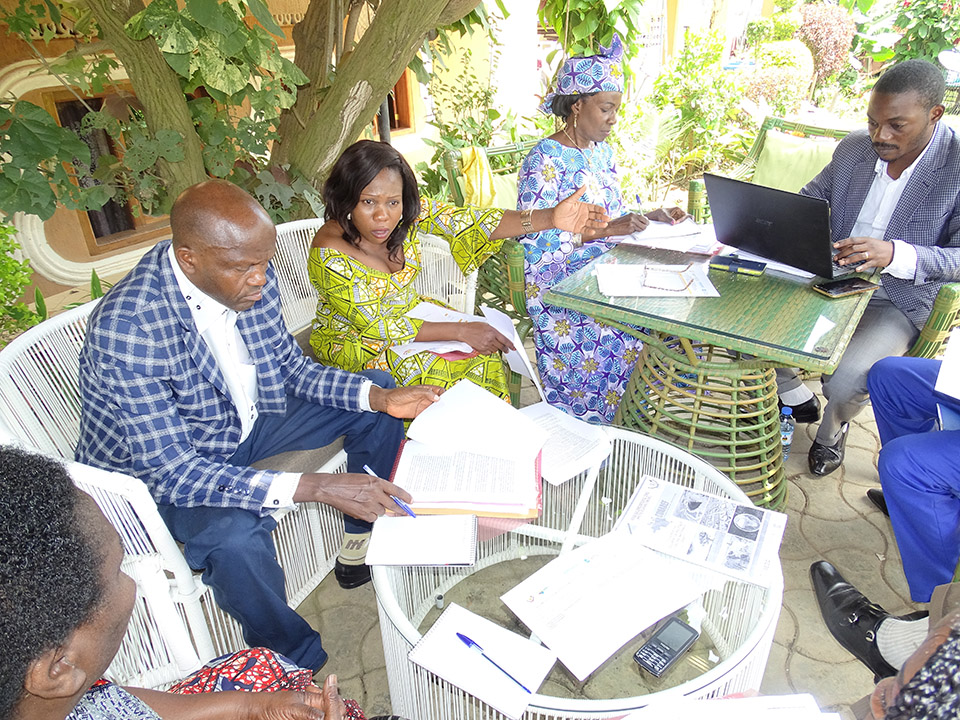 Professor MUGANGU informing stakeholders on the Land Information System in Goma, North Kivu / Photo: Hélène Bahati, UN-HABITAT
Professor MUGANGU informing stakeholders on the Land Information System in Goma, North Kivu / Photo: Hélène Bahati, UN-HABITAT
As for the National land policy document, a first draft was developed in 2018 and has gone through national consultations since July 2019 to ensure that the process of the land reform is participatory and inclusive. Consultative workshops were held in nine provinces: Bas-Uelé, Haut-Uelé, Ituri, Kasai, Kwango, Kwilu, Nord Kivu, Sud Kivu, and Tshopo. The consultations sought to raise public awareness about the land reform process and collect land policy document inputs from key stakeholders such as civil society, indigenous peoples, women, youth, land sector administrators, traditional authorities, local and national officials, the private sector as well as religious groups. The workshops considered the current practices, challenges and recommendations within the judicial, social, economic, institutional, environmental and political frameworks in DRC to inform the new land policy. Approximately 600 people participated in the consultations, with 15% being women. CONAREF is now integrating the inputs collected and is evaluating the current land law (Law No. 73-021 of July 20, 1973) in the context of preparation of the new land law.
This year also saw the development of the draft methodological guide on the establishment of a Land Information System (LIS) for the country. The guide describes how to integrate land and forestry tenure of the local communities into the LIS and enhance the national cadastre to integrate customary tenure through decentralisation. The pilot experiences started in 2 provinces (Maindombe and Ituri) to develop the Community Land Registry (CLR) as part of the Land Information System (LIS) and an innovative tool for a fit-for-purpose land administration in the context of the DRC. The finalization of the guide will be informed by lessons learned from the implementation of experiences in the four pilot provinces of the program: Kwilu, Maindombe, Ituri and Kasai oriental. The success of the pilots will also be used to inform the legal and policy frameworks to scale up the experiences at country level.
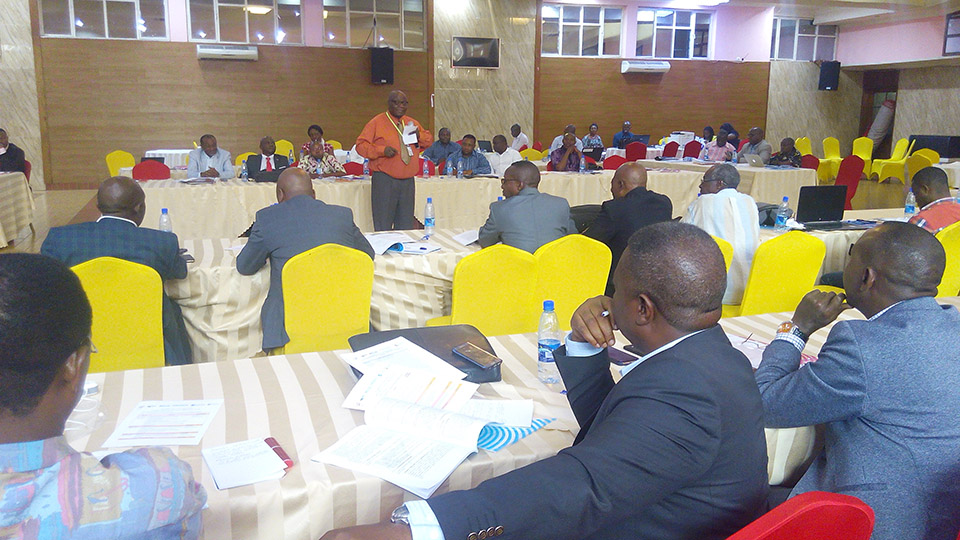 Professor MUGANGU informing stakeholders on the Land Information System in Goma, North Kivu / Photo: Hélène Bahati, UN-HABITAT
Professor MUGANGU informing stakeholders on the Land Information System in Goma, North Kivu / Photo: Hélène Bahati, UN-HABITAT
It is noteworthy that the DRC Land Reform Support program benefits from the technical support of the Global Land Tool Network (GLTN), an alliance of international partners contributing to poverty alleviation through increased access to land and tenure security for all. GLTN develops, disseminates and implements pro-poor, gender-responsive land tools that contribute to land reform, good land governance, inclusive land administration, sustainable land management, and functional land sector coordination.
